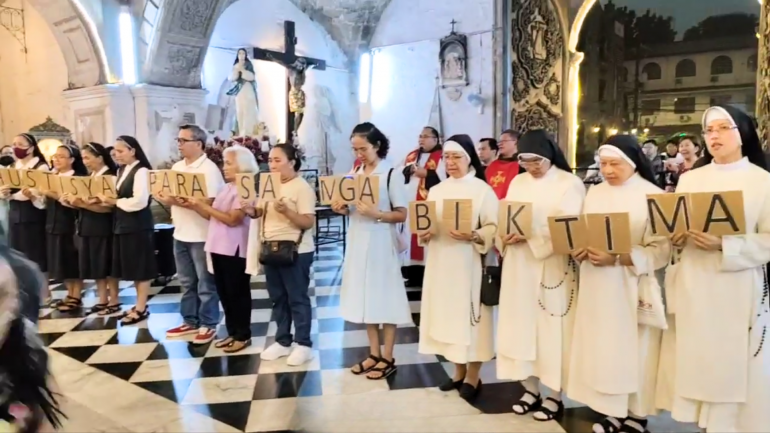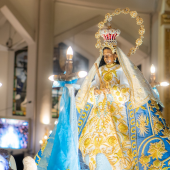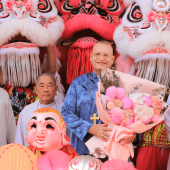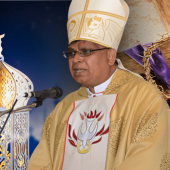Conference of superiors decries Senate delay in impeachment trial of Philippine Vice President Duterte

The Conference of Major Superiors in the Philippines has denounced the inaction of the Senate in the impeachment complaints against Vice President Sara Duterte.
“We strongly condemn the deliberate delay in the impeachment proceedings against Vice President Sara Duterte, enabled by political maneuvering within the Senate, led by Duterte-aligned senators and Senate President Chiz Escudero,” the conference said in a statement read after a homily in San Agustin Church in Manila on June 6.
The conference accused Escudero of using his power as Senate President to delay the impeachment proceedings as part of his agenda for advancing his personal and political career and called it “a betrayal of public trust and abandonment of the Senate’s constitutional duty.”
“When the Senate prioritizes the interests of a few over the welfare of the people, it betrays its constitutional duty and the trust of the Filipino people,” the conference said.
In February this year, 215 of the 306 members of the House of Representatives signed the complaint to impeach Duterte over alleged malversation of confidential funds amounting to P612 million; conspiracy to assassinate President Ferdinand Marcos, Jr.; bribery and corruption in the Department of Education; unexplained wealth and failure to disclose assets; involvement in extrajudicial killings; and destabilization, insurrection, and public disorder.
The Senate formally received the articles of impeachment on February 5, just hours after the House of Representatives impeached Duterte by an overwhelming vote. The Senate received the articles of impeachment two hours prior to Congress's recess.
Escudero told reporters on March 6, this year, that the Senate could convene as an impeachment trial court after Congress resumed sessions on June 2.
Under the Philippine charter, a verified complaint or resolution of impeachment filed by at least one-third of all the members of the House of Representatives “shall constitute Articles of Impeachment, and trial by the Senate shall forthwith proceed.”
Outgoing Senator Francis Tolentino on June 2 told reporters that Duterte’s impeachment trial would be “functionally dismissed” if the Senate couldn’t conclude it before the 19th Congress ends on June 13. The 19th Congress convened on July 25, 2022.
“We do not speak for any political party or candidate,” the conference said. “We speak because faith has social consequences. We speak because our consecrated lives are not for personal gain but for God and His people, especially the poor, the vulnerable, and the deceived. To remain silent in the face of corruption is to participate in sin. To ignore the manipulation of truth is to turn our backs on the Gospel.”
The vice president was the running mate of Marcos in the 2022 national and local elections.
Their alliance started to crumble when their stand on China’s actions in the West Philippine Sea surfaced, over which Marcos is perceived as pro-US and Duterte as pro-China. Their differences have intensified since the Dutertes publicly expressed their animosity towards the Marcoses.
The Vice President is the daughter of former President Rodrigo R. Duterte, who is currently in the custody of the International Criminal Court waiting for trial for alleged crimes against humanity during his time as mayor of Davao City and president of the Philippines.
Duterte could avoid the verdict of the Senate as an impeachment court if she resigned as Vice President of the Philippines and later ran freely for any elective public office, experts said.
“As consecrated men and women who have offered our lives to God in service of the Church and the nation, we cannot remain silent. We are called by the Gospel to stand up for truth and denounce injustice.”
Radio Veritas Asia (RVA), a media platform of the Catholic Church, aims to share Christ. RVA started in 1969 as a continental Catholic radio station to serve Asian countries in their respective local language, thus earning the tag “the Voice of Asian Christianity.” Responding to the emerging context, RVA embraced media platforms to connect with the global Asian audience via its 21 language websites and various social media platforms.














